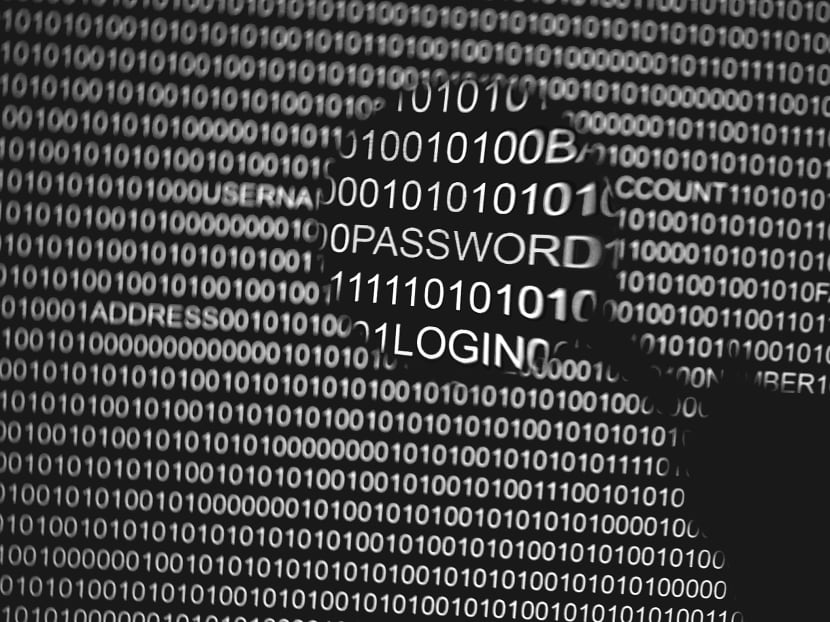Protect your personal data with 6 basic steps
Hardly a day goes by without yet another report of personal data being hacked and stolen, whether it's from a bank website or a ride-sharing mobile application or even a government site. You will need to make sure you guard your data and monitor your finances to protect yourself, your identity and your money. The scale of the problem is indeed huge.
Hardly a day goes by without yet another report of personal data being hacked and stolen, whether it's from a bank website or a ride-sharing mobile application or even a government site. You will need to make sure you guard your data and monitor your finances to protect yourself, your identity and your money. The scale of the problem is indeed huge.
Facebook said that more than 65,000 users in Singapore may have had their information "improperly shared" with British political consultancy Cambridge Analytica, for instance, and personal information of about 380,000 riders or drivers of ride-sharing app Uber in Singapore was exposed in its big data breach in 2016.
Attacks like these expose your information to hackers who may use your credit card details to make fraudulent purchases or use your data to try to steal your money online.
Fixing these attacks is costly. Surveys from data security firm Norton showed that consumers around the world lost more than S$180 in each cyber attack that used their information and then had to spend about 24 hours cleaning up the mess.
'PRIVACY PARADOX'
With attacks happening so frequently, it is more important than ever to guard your data carefully. However, many people don't protect it.
One reason, the World Economic Forum (WEF) opined, is the "privacy paradox". Even though people say they want to protect their data, they often do little to keep it safe.
Since data is intangible, people find it difficult to feel they own it and tend not to protect it. Many people also don't think their data can be used easily without their permission, so they may not worry about it.
If you're one of the people who are not protecting your data much or at all, there are dozens of steps you can take to keep it safe and protect your money from hackers.
Six simple ones are likely to have the biggest benefit.
CHANGE PASSWORDS REGULARLY
First, choose a separate and secure password for each account, and change it regularly.
The best ones are a combination of unusual upper-case and lower-case letters, rather than simple words. An alternative is to use passphrases, or a sequence of words, such as "chopeaseatnow", rather than a singular word.
And if you can't remember all those passwords, you can use a password manager such as Dashlane or LastPass to store them securely. The passwords will be kept in a digital vault, and you can access them with a password or passphrase.
If you don't have secure passwords yet and are intimidated by how many you have to change, focus on the really important ones such as your bank and email accounts first, then change the rest gradually.
UPDATE SOFTWARE, APPS
Next, keep software and apps on your phone and laptop up-to-date by downloading updates as soon as the newest versions are available.
The updates often have security fixes that help secure your device, and non-profit American publication Consumer Reports, which does rigorous testing and reviews of consumer products, observed that downloading these updates is one of the most effective ways to protect your devices.
After installing an update, check your privacy settings in "settings" or "system preferences" to make sure nothing has changed. Installing anti-virus software on your devices helps protect them, too.
ADJUST PRIVACY SETTINGS
Third, check the privacy settings of your social media accounts to make sure you are not letting them share your information. Go to "account settings" in Facebook and select "apps" to review what accounts can be logged into with your Facebook account, for instance, then remove apps you no longer use.
Then, make sure you don't post personal information online, such as your birthdate or mother's name, since attackers may use it to access your accounts or make scams seem more realistic.
You should also turn off the "share location" function on your phone when you don't need it, because it leaves location information such as your home address vulnerable.
Disable Bluetooth when you aren't using it, too, since malware such as BlueBorne targets Bluetooth.
Then, choose strong privacy protections when you sign up for a new app rather than simply saying "yes" to all the information the company wants to access.
There is usually no reason for an app to access your microphone or contacts, for instance, so it is better to turn off the permissions. If that keeps the app from working the way you want, you can always turn it back on later.
STAKE A CLAIM ON ACCOUNTS, NAMES
Fifth, consider signing up for important accounts such as bank accounts before hackers do. If you don't, fraudsters might get your information and sign up with your bank or other financial service provider to gain control of your accounts.
And finally, avoid using Wi-Fi hotspots when you can, since hackers use them to steal your data without you even knowing it.
It might seem that protecting your data will take lots of time for little benefit. By using technology such as password managers or automatic updates, though, you can protect your financial life more easily than you might think and keep your money from being stolen digitally.







